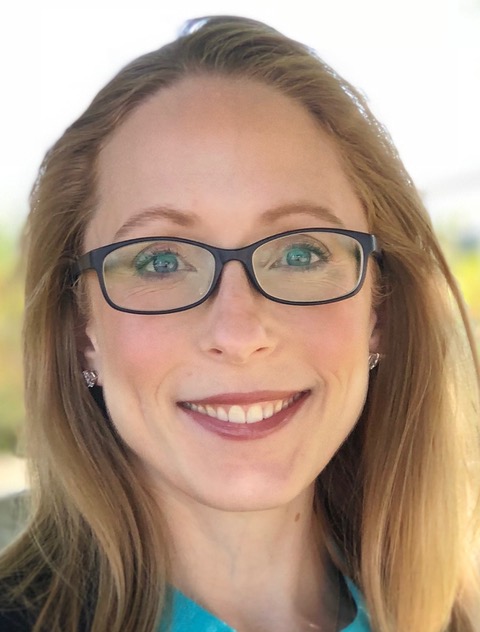
Dr. Kristin Andruska, movement disorder specialist, will be speaking on “Parkinson’s Disease and the Gut” at the October 9th, Palo Alto PD Support Group meeting on Wednesday, October 9th, 2:30-4pm. This will be the group’s first meeting at Channing House, 850 Webster St., Palo Alto.

Dr. Andruska did her movement disorder fellowship training at Stanford. She is now the medical director at The Parkinson’s Institute in Mountain View, CA. The Parkinson’s Institute has been conducting research into the role of the gut’s microbiome in Parkinson’s Disease. Read more about her below.
After 20 years at Avenidas — with a hiatus of 18 months when we were at Little House Activity Center in Menlo Park — the Palo Alto Parkinson’s Disease (PD) Support Group meeting is moving to Channing House, another downtown Palo Alto location. This move is effective as of October 9, 2019. This group provides educational speakers for anyone wanting to learn more about PD. Meetings are free and open to the public. No RSVP is required.
Event Details:
Speaker/Topic:
“PD and The Gut”
Kristin Andruska, MD, PhD
Medical Director, The Parkinson’s Institute, Mountain View, CA
When:
Wednesday, October 9th, 2:30 – 4pm
(Meetings are the 2nd Wednesday of each month)
For December’s meeting, we may have a social gathering.
Where:
Auditorium
Channing House, 850 Webster Street, Palo Alto 94301 (Map)
Speaker Bio:
Kristin Andruska, MD, PhD, is the medical director of The Parkinson’s Institute, Mountain View, CA. She is a board-certified neurologist who completed her fellowship in movement disorders at Stanford University. She has expertise in the use of botulinum toxin and deep brain stimulation and is committed to the lifelong care of those with Parkinson’s and other movement disorders. She completed her neurology residency at Washington University in St. Louis, where she also served as the chief resident of education. She was the recipient of the Irwin Levy Prize for Teaching, and the Abdullah M. Nassief Award for Neurology.
She attended the University of Minnesota School of Medicine, graduating from its prestigious Medical Scientist Training Program with both an MD and Ph.D. Her research in neurobiology focused on disease models of spinocerebellar ataxia (SCA1) in the lab of Dr. Harry Orr, a world-renowned researcher credited with discovering the genetic abnormality causing the disease—a seminal discovery that has had a wide-reaching impact in our understanding of neurodegenerative disorders. She received her undergraduate degree in biology from the University of Texas at Austin.
Dr. Andruska also has significant research experience in Parkinson’s. While at Washington University, she focused on two important projects. First, analyzing where alpha-synuclein, the major constituent protein of Lewy Bodies, localizes in the brains of people with Parkinson’s. And second, using sophisticated genetic techniques and population analysis, identifying which genetic variants influence Parkinson’s risk, onset, and progression.
Meeting Details:
As you enter Channing House, get a “visitor badge” from the front desk. The group meets in the Auditorium, which is on the main floor. The front desk can direct you.
Stanford will have a check-in table and materials near the entrance to the Auditorium.
The building is accessible to anyone with disabilities. Restrooms are near the front desk.
Parking:
There is plenty of free street parking along Webster, Channing (which runs eastbound only), and Homer (which runs westbound only). The parking spaces are limited to two hours.
Some accessible parking spaces are available near the Channing House entrance at 850 Webster St. Passengers may be dropped off at the front entrance.
Valet parking is also available.
Note:
The Palo Alto Parkinson’s Disease Support Group meetings are free and open to the public. No RSVP required.
Want to learn more about these meetings?
Join the group’s email list by contacting the support group leader, Robin Riddle, by email or phone (650-724-6090). We send out two reminders emails per month — one about a week before each meeting and one usually a day before each meeting. In those emails, we share guest speaker details (name, affiliation, and topic).
Note that these meetings are NOT recorded. In general, the only way to receive information shared by the guest speaker is to attend the meeting. If you can’t make it but are interested in the meeting topic, we suggest you ask a friend or family member to attend on your behalf.